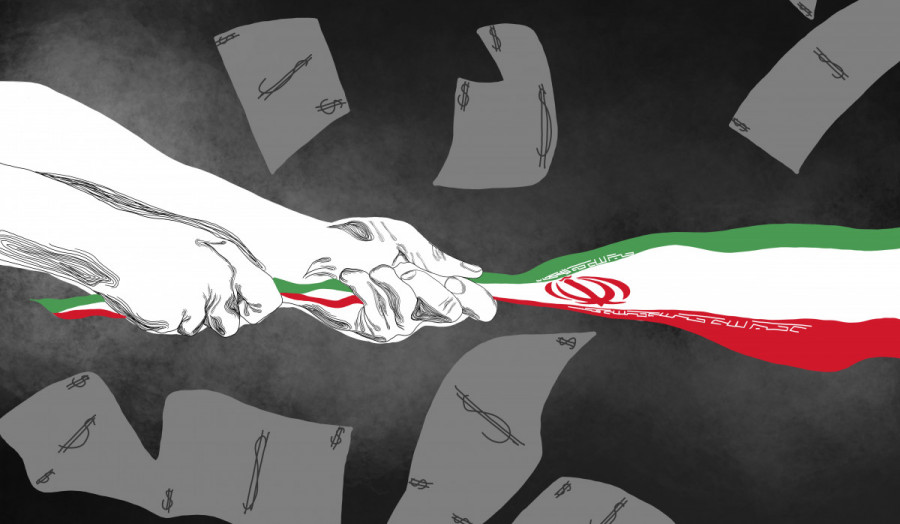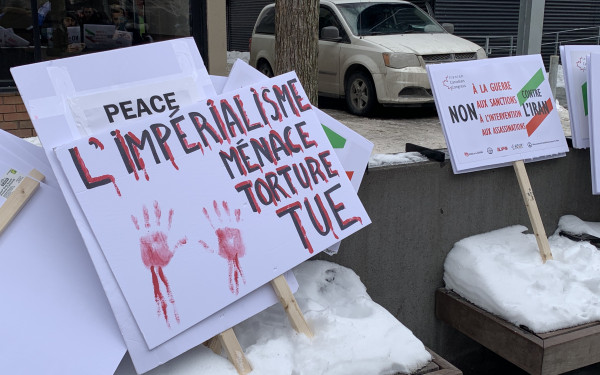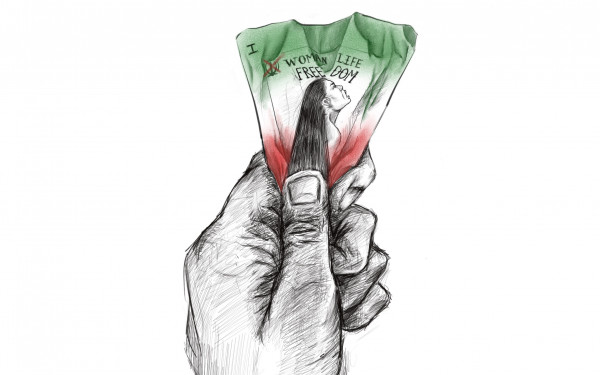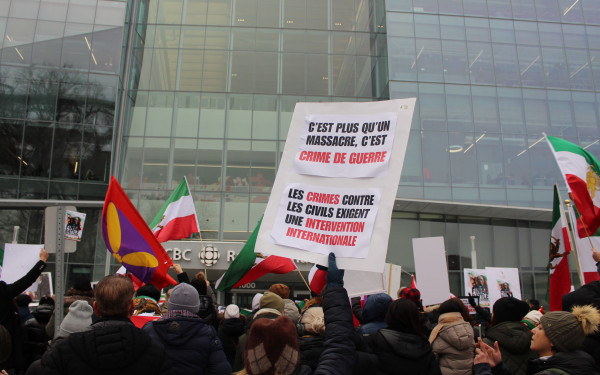Debtors’ University
Concordia’s Lackluster Accommodations for Iranian International Students in Debt
In early 2019, Darya faced heavy bouts of depression. She found herself calling mental health hotlines for the first time. Unable to sleep or eat, she felt her world crumbling around her.
Darya, an international student from Iran, watched her home country fall into chaos as crippling economic sanctions fueled mass protests.
“I felt like I was in mourning, a mix of rage and anxiety. These were really dark days, triggering my eating disorder and depression, and I know I was not the only one,” she said. Fuel would soon be added to the fire as the school year picked back up.
Darya had a new problem: she owed Concordia money. Following Iran’s economic crash, Concordia granted international students from Iran extensions in order to pay their outstanding balance—but with a deadline. She would have to find a solution before Dec. 31, 2019.
“Economists are now predicting that this currency crisis will likely continue in the coming years. Unfortunately, Concordia lacks the means to sustain these measures in the long term,” wrote Dean of Students Andrew Woodall on Sept. 9, 2019. “We are also concerned that some of you may be increasing your debt loads to a point that will make it impossible to pay back.”
Darya owed Concordia $8,824.16. As an international PhD student, she was only allowed to work 20 hours a week as per Canadian law. Fearing interest rates and debt collectors, she had to borrow money from a friend to pay off her outstanding balance.
The economic crisis gripping Iran in 2018 and 2019 was the result of the sanctions placed on the nation following the United States’ withdrawal from the Iran Nuclear Deal. The nation’s economy was thrown into disarray, causing the Iranian rial to crash in value.
Feeling like international students were being taken advantage of, Darya was upset by how the university asked for money. “Concordia clinged to the expectation that our families would help us. They have no idea,” she said. Because of the sanctions, the rial dropped down. If my mom wanted to help me, her whole salary for two months would be worth $80 when converted.”
According to Concordia Spokesperson Vannina Maestracci, Iranian students were given ample time and support to pay their tuition. “When the Iranian currency crisis started in 2018, Concordia offered temporary measures for tuition and fees to international Iranian students as some of them were encountering difficulty accessing funds from Iran in order to pay their tuition fees,” she said.
“The measures,” Maestracci continued, “allowed international Iranian students, at Concordia, to delay the payment of their tuition fees for several months, with no interest or late fees, and with many accommodations for specific and particular cases.”
Many Iranian students Darya knows have similar stories. “One had to pay $25,000. I had to pay close to $9,000. A friend of mine had to pay $17,000 at once,” she said. “This crisis has turned all of us from students to debtors.”
When accounts go unpaid, or “become delinquent,” as is stated on Concordia’s website, the university turns to an “external collection agency.” According to Darya, hundreds of Iranian students wrote a letter to the dean of students asking for additional assistance to avoid debt collectors or the accumulation of further interest.
“We wrote letters to the dean; we signed it, all of us. We were asking for an extension—we were literally asking for mercy.” — Darya
“It's not as if one student was irresponsible, no, we were more than 300 students,” Darya said. “We wrote letters to the dean; we signed it, all of us. We were asking for an extension—we were literally asking for mercy.”
Bahar, an international student from Iran who wished to remain anonymous, said she felt anything but support from the administration as she struggled to pay off her balance of $2,562.46.
Having dealt with financial issues from Concordia during the course of her PhD, Bahar was once again let down by the lack of support mechanisms the university provided her with. “We, as international students, are bringing lots of money to Concordia. They don’t acknowledge us, they just put the money in their pockets.”
“If they’re not willing to help us out financially, I would at least hope they would acknowledge what is currently going on in Iran,” Bahar said. “We can’t be there to support our families in person.
Iran’s political turmoil has continued devolving since the 2019 protests. In September 2022, Following the murder of Mahsa Amini, a 22-year-old Iranian woman who died in custody of the nation’s morality police, the country has once again errupted into chaos.
On Sept. 27, the university put out a list of resources for Iranian students in crisis. The list included phone numbers to the international student healthcare plan, as well as links to Concordia’s Zen Dens.
“I remember calling a mental health hotline,” Darya said. “I called every single number on the list of resources available to me. The earliest appointment was in seven months.”
“There are over a thousand international students from Iran at Concordia,” Bahar said. “We pay tuition, we pay taxes—too much money to not even get basic support when we are in desperate need of assistance.”
Since the uprisings in 2022 across Iran following Mahsa Amini’s death, many Iranian students have turned to political organizing. Darya has been at the front lines of organizing protests across Montreal with the Iranian Student Association of Concordia University.
“It costs nothing to spread awareness,” she said. “We’re not giving up.”
This article originally appeared in Volume 43, Issue 4, published October 12, 2022.







_600_375_90_s_c1.jpg)